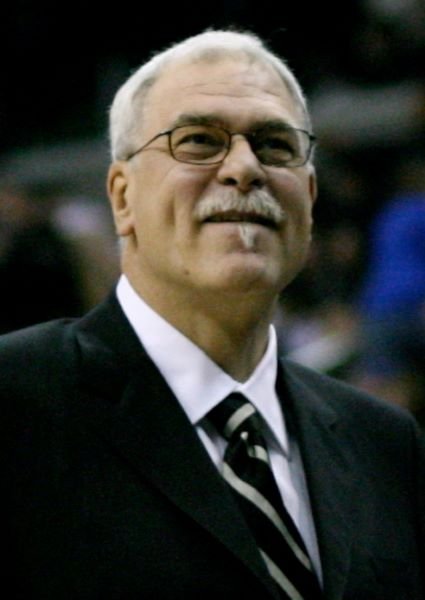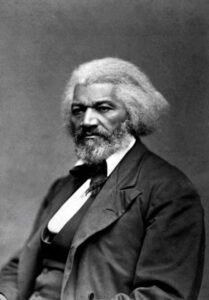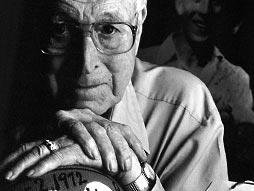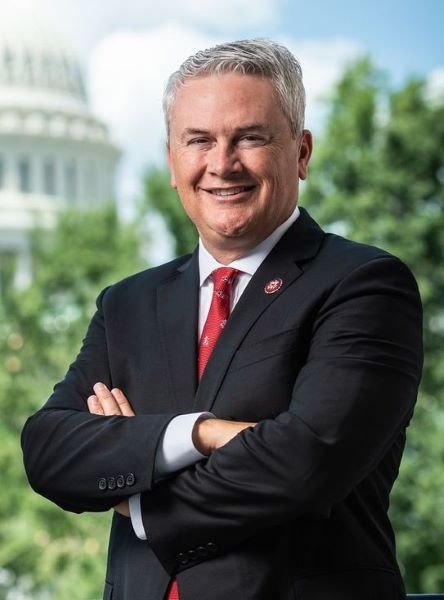Managing Parental Expectations for Youth Sports Coaching
Discover essential tips for managing parental expectations in youth sports. Learn how to navigate the dynamics of parent-coach relationships to create a positive environment for young athletes.
Navigating the delicate balance between parents and coaches in youth sports can be challenging. This post offers practical tips for managing parental expectations and fostering collaborative relationships for the benefit of young athletes.
– Coach Johnny
Introduction
Managing parental expectations in youth sports is more than just sideline interactions; the dynamics between coaches and parents are pivotal to the sporting experience of young athletes.
A healthy relationship between coaches and parents is crucial, built on clear communication and mutual respect.
Properly managing parental expectations smooths the pathway for coaches and enhances the overall experience for everyone.
By setting realistic goals and fostering an environment of cooperation, we can facilitate more rewarding and productive experiences in youth sports.

“The strength of the team is each individual member. The strength of each member is the team.”
– Phil Jackson is one of the greatest professional basketball coaches ever. He coached the Chicago Bulls from 1989 to 1998, leading them to six NBA championships.
Understanding Parental Expectations
The Psychology Behind Parental Involvement
Managing parental expectations can be tricky because parents are deeply invested in their children’s sports activities.
Many parents feel pride and joy when their children participate in and succeed in sports.
Socially, sports provide a context where families can connect with their community, meet other parents and families with similar interests, and foster a sense of belonging and collective identity.
Developmentally, sports are seen as a conduit for teaching valuable life skills to children, such as discipline, teamwork, and perseverance.
This parental involvement is important and integral to the child’s sports journey.
The competitive nature of sports can also mirror the parents’ aspirations or unfulfilled dreams, leading them to invest deeply in their child’s athletic success.
Additionally, parents can sometimes view sports as a potential pathway to future opportunities, such as scholarships and career paths.
Common Expectations and Where They Come From
Parents often have specific expectations for their child’s involvement in sports, generally focusing on playing time, training intensity, and competitive success.
Playing Time: Most parents expect their children to receive fair and substantial playing time, believing active participation is essential for skill development and enjoyment.
When children are benched, parents may feel their child is missing out on valuable experiences, leading to frustration and disputes with coaches.
This issue is particularly common among newer coaches, who may prioritize winning over development.
Training Intensity: Parental expectations about training intensity can vary.
Some parents desire intense, structured sessions akin to elite programs, thinking it necessary for competitive success.
Others favor a balanced approach that emphasizes skill development and enjoyment, concerned that too much intensity could lead to burnout or injury.
It’s clear that younger children, especially those under 12, should not be subjected to the rigors of elite programs as it can be counterproductive.
Competitive Success: Many parents also expect their child’s team to excel in competitions, often influenced by the local sports culture or the prestige of winning championships.
However, equating a child’s sports success with good parenting or potential future athletic prospects is misleading.
Experience shows that fundamental skills and understanding the game are often lacking as athletes progress, highlighting the need for a focus on comprehensive training over merely winning games.
Wanting what’s best
Understanding these expectations and their origins helps coaches and sports program administrators foster better relationships with parents.
By recognizing the shared goal of wanting the best for the child, coaches can address concerns more effectively.
This allows them to communicate more clearly, and establish a partnership that benefits the child’s development and enjoyment of sports.
Engaging parents in discussions about realistic expectations and the true objectives of youth sports can help align goals and reduce conflicts
This also creates a more positive and supportive environment for everyone involved.
“Children need models rather than critics.”
– Joseph Joubert, a French moralist and essayist, is largely remembered today for his Pensées (Thoughts), published posthumously.

Communication: The Key to Managing Expectations
Establishing Open Lines of Communication
Effective communication is key to managing parental expectations in youth sports.
Maintaining open lines of communication can help resolve conflicts and prevent them from arising.
Coaches have several strategies at their disposal to ensure communication is clear, consistent, and constructive.
One successful approach is to hold regular meetings and updates.
Pre-season meetings before games start are an excellent opportunity to set the tone, discuss team policies, and outline goals for the season.
These meetings provide parents with a clear understanding of what to expect and offer a chance to address any questions or concerns early on.
Continual updates throughout the season are crucial in keeping parents informed about their child’s progress and any changes in the team’s schedule or strategy.
These updates, whether through weekly emails, a team website, or social media groups designed for team communication, play a significant role in involving parents in their child’s sports journey.
They help maintain transparency, reduce misunderstandings, and build trust.
Another important strategy is ensuring coaches are available for one-on-one discussions with parents outside of practice and game times.
Setting aside office hours or appointment times provides a structured way for parents to engage with coaches.
These discussions are vital in fostering trust, understanding, and a shared commitment to the team’s success without interfering with the coach’s responsibilities during team activities.
Setting Boundaries and Guidelines
While open communication is vital, it is equally important to establish clear boundaries and guidelines regarding roles and responsibilities when managing parental expectations.
Clearly defining these boundaries from the start can prevent many issues related to parents’ overstepping in coaching matters.
Coaches should clarify what they consider acceptable parental involvement and where the line is drawn.
For instance, parents should understand that decisions about playing time, team strategy, and player positions are the coach’s prerogative and should be respected.
Guidelines can also cover how and when parents can provide feedback to the coach.
Establishing a formal feedback process can help manage when and how parents express their concerns or suggestions, preventing disruptions during practices or games and keeping interactions constructive.
Documenting these boundaries and guidelines in a parent-coach agreement is not just a formality. It’s a powerful tool.
Having parents acknowledge these terms in writing reinforces the understanding and acceptance of the coach’s authority and the respect expected within the team environment.
This agreement concretely reminds everyone of the shared commitment to the team’s success, empowering all parties involved—coaches, players, and parents—to focus on what truly matters: developing young athletes in a positive, supportive, and enjoyable sports environment.

“One man can be a crucial ingredient on a team, but one man cannot make a team.”
– Kareem Abdul-Jabbar, a Hall of Famer, MVP, and former professional basketball player who played 20 seasons in the NBA
Strategies for Handling Difficult Situations
Dealing with Overly Competitive Parents
In youth sports, overly competitive parents can pose challenges for coaches, often setting unrealistic expectations for their child’s performance and the team’s success. This can lead to undue pressure and conflict. Here are strategies to manage these situations effectively:
Educate on Youth Sports Goals: Emphasize that youth sports prioritize development, enjoyment, teamwork, and physical fitness over winning. Hosting sessions on the broader benefits of sports can help realign parents’ expectations.
Set Clear Expectations Early: At the season’s start, clearly outline team policies and focus on skill development and personal growth. This clarifies what parents should expect from their child’s sports experience.
Positively Engage Parents: Involve overly competitive parents constructively by assigning roles like team statistician or event organizer. This gives them a constructive outlet and deeper sense of involvement.
Personal Meetings: If a parent’s behavior becomes disruptive, schedule a private meeting to address the issue directly. Listen respectfully to their concerns, explain the impact of their behavior on the team, and focus on the children’s well-being.
Maintain Professional Boundaries: Always uphold professionalism. If discussions escalate, calmly reiterate the team’s sportsmanship and conduct policies, avoiding arguments in front of the children.
Seek Mediation if Necessary: If issues persist, consider involving a third party like a league administrator to mediate and offer a fresh perspective that might facilitate resolution.
Resolving Conflicts
Conflicts between parents and coaches can arise from misunderstandings or differing expectations and escalate if not managed carefully. Here are steps to effectively resolve these issues:
- Prompt Address: Address conflicts as soon as they arise. Ignoring small issues can lead to bigger problems, and immediate communication can prevent misunderstandings from escalating.
- Listen Actively: Give parents a chance to express their concerns without interruption. Often, conflicts arise simply from feelings of not being heard. Validate their feelings, even if you disagree with their views.
- Clarify Misunderstandings: After listening, clarify any misunderstandings by explaining the situation from your perspective. Provide specific examples and refer back to the team’s policies and the roles defined in the parent-coach agreement.
- Work Towards a Solution: Involve the parent in finding a solution. Ask for their input on how they believe the situation can be improved. This collaborative approach can turn adversaries into allies.
- Follow-Up: After resolving the issue, follow up with the parent to ensure that the solution works and that no new issues have emerged. This shows commitment to maintaining a positive relationship.
- Document Interactions: Keep a record of all interactions and agreements made. This can be useful for reference in ongoing communications and any future issues.
Handling difficult situations requires patience, empathy, and clear communication.
Addressing issues directly and respectfully can maintain a positive and supportive environment that enables all participants to thrive.
“It is easier to build strong children than to repair broken men.”
– Frederick Douglass, an American social reformer, abolitionist, orator, writer, and statesman.

Building a Positive Team Culture
Involving Parents in the Team Community
Creating a positive team culture extends beyond the athletes and coaches; it involves the entire community, including parents.
By managing parental expectations in non-coaching capacities, you can foster a sense of harmony and shared goals that benefit the team atmosphere and support the players’ development.
- Volunteer Roles: Encourage parents to take on volunteer roles that suit their skills and interests. From organizing carpool schedules and managing equipment to planning fundraising events and maintaining the team website, there are multiple ways for parents to contribute that do not involve direct coaching.
- Parent Committees: Establish committees for specific tasks such as event planning, hospitality, and communications. This structured involvement helps parents feel connected to the team and responsible for its success without stepping into coaching duties.
- Educational Workshops: Offer workshops that parents can attend to learn more about the sport, nutrition, sportsmanship, and child development. This knowledge helps parents understand the coaching decisions and reinforces the sports-related values being taught.
- Social Events: Organize social events like team dinners or family sports days, which allow parents, coaches, and players to interact in a relaxed, informal setting. These fun gatherings strengthen the community bonds and make everyone feel more invested in the team’s well-being.
Celebrating Team Success Together
Recognizing individual achievements and team success is crucial in building a positive culture. It reinforces the effort the players make.
It shows that the entire team community, including the parents, values hard work and dedication.
- Award Ceremonies: Host regular award ceremonies that honor the star performers, the most improved players, the best teammates, or those who demonstrate great sportsmanship. Invite parents to these events to celebrate these milestones together.
- Team Newsletters: Create a team newsletter highlighting achievements, upcoming events, and player spotlights. Encourage parents to contribute and distribute this newsletter to keep the team community informed and engaged.
- End-of-Season Celebrations: Plan an end-of-season celebration that involves players, coaches, and families. This can be an occasion to reflect on the season’s successes, share memorable moments, and recognize everyone’s contributions, not just the athletes.
- Public Acknowledgments: Utilize the team’s social media platforms or local newspapers to acknowledge the team’s and individual players’ achievements. This public recognition can boost morale and encourage a sense of pride among team members and their families.
By involving parents in the team community and celebrating success together, you enhance the team spirit and create an inclusive atmosphere where every member feels valued and uplifted.
This approach helps develop a positive and enduring team culture.

“A good coach can change a game. A great coach can change a life.”
John Wooden is an American basketball coach and player. Nicknamed the “Wizard of Westwood,” he won ten National Collegiate Athletic Association (NCAA) national championships in 12 years as head coach for the UCLA Bruins, including a record seven in a row.
Conclusion: Sustaining Positive Relationships
In youth sports, the foundation of a successful program lies in the strength of its relationships—between coaches, parents, and athletes.
Throughout this discussion, we’ve explored strategies for managing parental expectations, enhancing communication, and fostering a community spirit.
Coaches must nurture these relationships proactively, emphasizing a supportive and understanding environment.
By doing so, coaches ensure that youth sports remain a positive, developmental experience that benefits all children involved.
This commitment to maintaining positive dynamics is essential for the holistic growth of young athletes and the health of the sports community.
Call to Action
Are you ready to make a positive impact in the world of youth sports? Take the initiative today!
Start by implementing the strategies for building strong, constructive relationships with parents and fostering a supportive team environment.
Whether you’re a coach, a parent, or a program administrator, your proactive efforts can transform the sports experience for our young athletes.
Let’s create a nurturing, enjoyable, developmental setting that champions personal growth and team spirit.
Join us in this commitment. Contact your local sports club or team to see how you can make a lasting difference.
“No significant learning occurs without a significant relationship.” — James Comer is an American politician from the Commonwealth of Kentucky who represents the state’s 1st congressional district in the US House of Representatives.

Further Reading/Resources
The following resources offer valuable insights for those seeking to enhance their understanding of effective coaching and parent relationships in youth sports.
Whether you’re an experienced coach, a parent, or new to youth sports, these resources provide essential guidance and support.
Books:
- “Coaching Outside the Lines: Using Literature to Enhance the Human Dimension of Sports” by Gil Fellingham and Randy Gill explores the intersection of literature and coaching to boost athletes’ emotional and psychological growth.
- “The Matheny Manifesto” by Mike Matheny provides insights from a former professional baseball player and manager on fostering a positive youth sports environment focused on character and teamwork.
Websites:
- Positive Coaching Alliance (PCA) – www.positivecoach.org offers tools for coaches, parents, and organizations to ensure a positive youth sports experience.
- Changing the Game Project – www.changingthegameproject.com provides articles, podcasts, and videos aimed at making sports enjoyable and transformational for children.
Online Courses:
- “Double-Goal Coach®: Culture, Practices, and Games” by Positive Coaching Alliance equips coaches with strategies to make sports both fun and educational.
Videos and Documentaries:
- “In Search of Greatness” – This documentary examines the upbringing and coaching of iconic athletes.
- TED Talks on Sports – A series exploring various aspects of sports coaching, psychology, and youth development.
Organizations:
- National Alliance for Youth Sports (NAYS)—www.nays.org—offers training to promote a safe and positive sports environment.
Engaging with these materials can significantly enhance the coaching experience, helping to foster both athletic and life skills in young athletes.
Join the JK Tribe
Coach Johnny is a youth sports coach with over 30 years of experience. He continues to coach various sports in various age groups (pre-high school) for all genders. He is also the founder of Johnny’s Kidz and the JK Tribe. If you would like to support his journey and become a Tribe member, reach out and Buy Coach A Cup of Coffee. And remember, The Game Belongs to Them!

